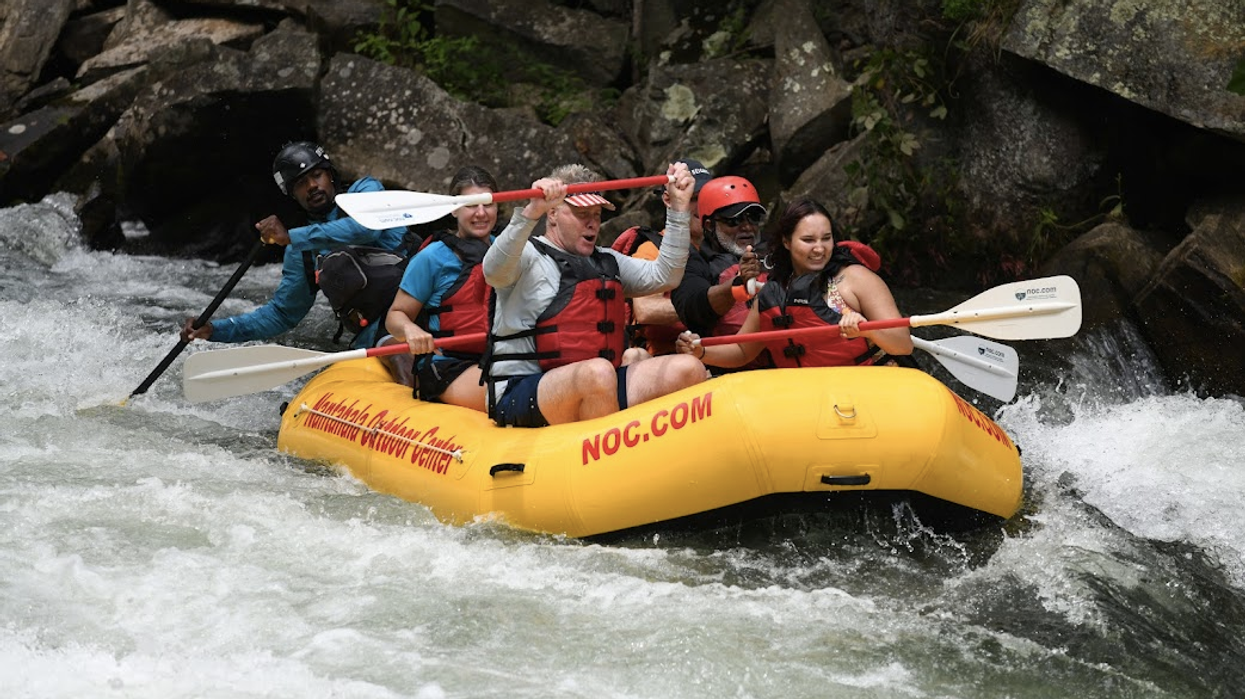It's no secret that most of us in America find ourselves in a wildly different place these days.
It's a place that some of us might say we barely recognize. I wish I could describe it as being a happier place, but instead, it's a place that seems to have more anxiety, fear, anger, intolerance, and even hatred. It's a place where dialogue is often avoided for fear of igniting a firestorm of controversy. And it's a place where many of us would say that joyfulness is becoming harder and harder to find. It's not surprising, then, that we find ourselves immersed in this unprecedented "epidemic of loneliness."
Off and on, for more than a few years now, I've been tempted to feel like a victim of these challenging forces. And as much as I want to help make America a happier, healthier place for all of us, sometimes I've been deeply worried, depressed, even overwhelmed by the immense amount of hard work it seems to take just to keep my own head on straight, let alone the other 340 million of us.
But then I saw a miracle.
Not a miracle in the theological sense. But every bit as powerful in terms of reshaping my thinking on the polarization challenge that we're all facing.
Last summer, I had the good fortune of being in western North Carolina for one of Team Democracy's R.A.F.T. ( R euniting America by Fostering Trust) events. What caught my eye were two ordinary Americans, one from the far left, and one from the far right, who were paired up in a raft for an excursion down the Nantahala River where they - and other pairs like them - would play together and work together to tackle the challenges in front of them.
CBS and other film crews were on hand to see what would happen. As CBS correspondent Major Garrett later confided, "I wouldn't have believed it if I hadn't seen it myself."
- YouTubewww.youtube.com
What he and I both saw were two of the most diametrically opposite people imaginable: Rodney Sadler, a black, progressive, southern minister, who was paired up with Lance Moseley, a white, conservative Trump supporter.
This couldn't possibly end well.
Before the trip, Lance and Rodney sat side by side for an interview with Major Garrett. It was awkward. They agreed on nothing. And they leaned about as far away from each other as they could.
Five hours later, they were back in those same two chairs, this time leaning toward each other, laughing, joking, and ending the interview with a heartfelt embrace and a shared "Love ya, brother!"
Lance and Rodney's differences were still there—all of them. But in the few playful hours they shared on the river, they discovered genuine joy in connecting with each other's humanity and in being open enough to hear and respect each other's experiences, personal stories, and ideas.
All of us on that trip were inspired by what we saw.
It reminded me of when Becca Kearl, Executive Director of one of the country's leading practitioners promoting the importance of cross-partisan dialogue - ( Living Room Conversations) - described how, in the right circumstances (open mind, open heart and genuine curiosity about others' perspectives) reaching out across our differences doesn't need to be difficult or intimidating, but can actually be joyful, liberating, and fulfilling.
It reminded me of when Karissa Raskin, Executive Director of a project that helps align the work of more than 500 nonprofit organizations that are bringing Americans together across divides ( Listen First Project) described "shared play experiences" as being a joyful and powerful pathway to deeper connections.
And it reminded me of my own experience with the Unify Challenge, an extraordinary platform offered by Unify America, where anyone can start to dabble with the idea of connecting, in a safe way and in a safe place, with someone outside their bubble. In my case, I was paired up with a college student who was 50 years my junior, and my political opposite, for a 90-minute conversation about 14 of the thorniest topics Americans are struggling with. At the end, we couldn't pull ourselves away from the call because we were finding so much enjoyment in sharing and understanding our differences.
Lance and Rodney have modeled for us something that is at the same time miraculous and universal - something that lives in each of us already; something that doesn't fade away, but has lasting power and impact.
Now, half a year later, Lance and Rodney are the best of friends. They talk. They collaborate. They will soon help launch Team Democracy's Reuniting America Podcast - a safe place where wildly different points of view can be aired in a healthy atmosphere that's filled with intellectual curiosity.
Lance and Rodney showcase something that each of us is capable of emulating. We would all do well to lean in, learn from them, and follow their inspiring example.
For more information about their journey, or to participate in, partner with, or sponsor a RAFT for America event this year, or to submit a request to be a guest on the soon-to-launch Reuniting America Podcast, contact ken.powley@teamdemocracy.org
Ken Powley is CEO and co-founder of Team Democracy. Powley lives in Mountain Top, PA. He retired from a 46-year career at the helm of his whitewater rafting company, to found Team Democracy with his brother-in-law Chris.




















Marco Rubio is the only adult left in the room